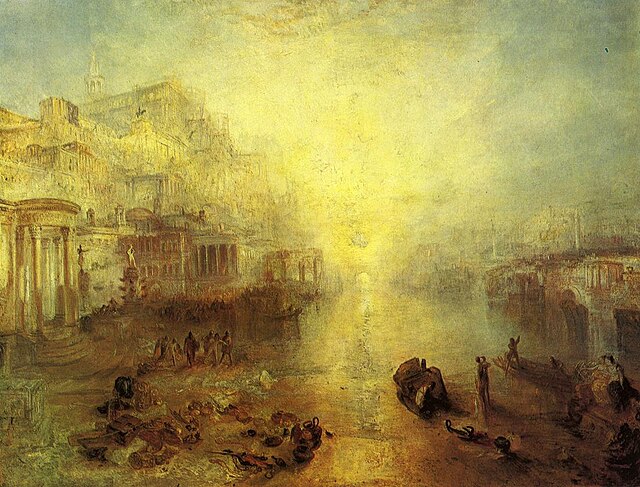In Greek mythology, Byblis or Bublis was a daughter of Miletus. Her mother was either Tragasia, daughter of Celaenus; Cyanee, daughter of the river-god Meander; or Eidothea, daughter of King Eurytus of Caria. She fell in love with Caunus, her twin brother.
Biblis by William-Adolphe Bouguereau (1884).
Byblis and Caunus by Laurent Delvaux, 1734, Bode Museum
Publius Ovidius Naso, known in English as Ovid, was a Roman poet who lived during the reign of Augustus. He was a younger contemporary of Virgil and Horace, with whom he is often ranked as one of the three canonical poets of Latin literature. The Imperial scholar Quintilian considered him the last of the Latin love elegists. Although Ovid enjoyed enormous popularity during his lifetime, the emperor Augustus exiled him to Tomis, the capital of the newly-organised province of Moesia, on the Black Sea, where he remained for the last nine or ten years of his life. Ovid himself attributed his banishment to a "poem and a mistake", but his reluctance to disclose specifics has resulted in much speculation among scholars.
Anonymous 18th-century engraving
Statue of Ovid by Ettore Ferrari in the Piazza XX Settembre, Sulmona, Italy
Ovid Banished from Rome (1838), by J.M.W. Turner
Medea in a fresco from Herculaneum






